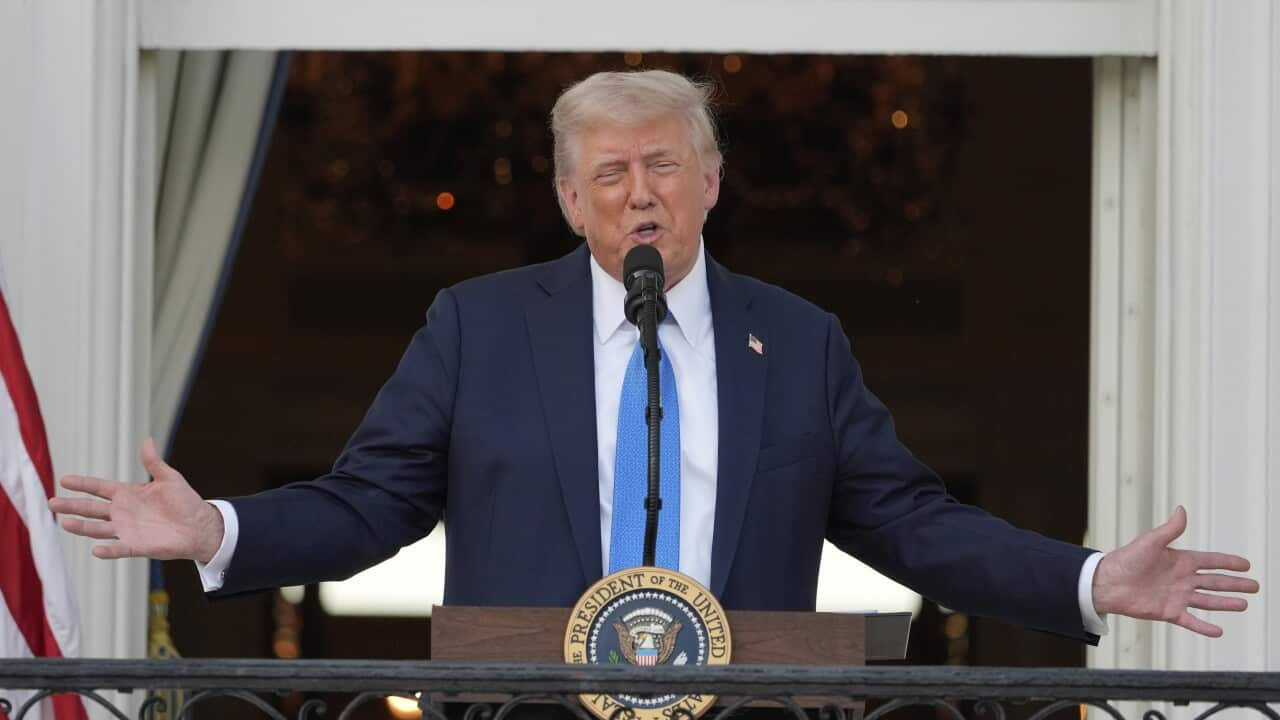United States President Donald Trump's "very damaging" steel and aluminium tariffs have now come into effect, putting a 50 per cent levy on the country's imports of the metals.
The policy will affect the cost of the products and could drive up the prices of goods Australia buys from the US.
Treasurer Jim Chalmers has described the tariffs as harmful for the global economy and cautioned Australia will feel the ripple effects.
"We don't want to see an escalation of tariffs, they are an act of economic self-harm, they are very damaging to the global economy, and we [Australia] won't be immune from that," he told the ABC on Thursday morning.
So, what effects could these tariffs have, and why has Trump introduced them?
Will the tariffs increase prices?
Professor Tim Harcourt, chief economist at the University of Technology Sydney, told SBS News the costs of steel tariffs would impact factories across the US.
"A lot of American factories use steel, so the cost of more expensive metal would be very harmful for several industries," he said.
"It's a component of many other things too," he said, as steel and aluminium are used in machinery and canned goods that Australia imports from the US.
Companies producing these products would likely pass on the increasing costs to consumers at the point of sale.
Harcourt said Australian-owned BlueScope Steel's North Star mill, which is located in the US, would probably "benefit" from the tariffs.
And that the downsides to the latest tariffs would be "pretty minimal" for Australians, thanks to a robust domestic economy.
"Our steel industry is very competitive, and they have opened up markets in Asia, meaning we are less reliant on the UK or US," he said.
While there may be a price hike for some canned products available in supermarkets, Harcourt said the bigger development to look out for would be how Australian steel producers adapt.
What about Australian steel?
Chalmers said Australia is "better placed than most countries" in managing the effects of the tariffs, but acknowledged there could be tough times ahead for Australia's steel industry.
"These tariffs, they'll have an impact on our steel makers," he said.
"But our exporters are among the best in the world. We're confident that they can find good markets, good reliable markets for wonderful Australian steel and aluminium."
Approximately 10 per cent of Australia's steel and aluminium exports are destined for the US.
Harcourt said north-east Asia is "the obvious place" for Australian exporters to look for new opportunities, as well as India.
By trading with countries that do not impose the 50 per cent steel and aluminium tariffs, the exporters would be able to sell more of their products and boost their profits.
"There may be some growing pains or costs in adjusting, but Australia is a very good steel, iron ore and aluminium exporter, so we will still be okay with partners in Asia and the Pacific," he added.
Why has Trump imposed steel and aluminium tariffs?
Trump announced his plans to increase tariffs on foreign steel imports from 25 per cent to 50 per cent over the weekend, in a bid to "secure the steel industry in the United States".
"Our steel and aluminium industries are coming back like never before," he said in a post on Truth Social.
In February, he had raised steel and aluminium tariffs to a flat 25 per cent "without exceptions or exemptions".
The White House has signalled that the United Kingdom will be temporarily spared from the executive order doubling the tariffs.
The measures, according to the administration, have been designed to protect the US steel industry, increase domestic supply, and avoid reliance on other countries for materials critical to defence.
Harcourt said he believes world leaders are using tariffs as a tool to assert their power, citing Chinese President Xi Jinping's decision to impose tariffs on Australian wine and grains a few years ago as an example.
The tariffs followed Australia's support for an investigation into the origins of COVID-19 and the overall deterioration of bilateral ties.
"I think China started the trade war and gave Donald Trump the idea that you can raise tariffs for reasons of geopolitics.
"Normally, tariffs don't go up, and they are simply driven by trade.
"But since Xi Jinping and China did that to Australia, now nations are using tariffs for all sorts of reasons, whether it be immigration or freedom of speech or defence."
For the latest from SBS News, download our app and subscribe to our newsletter.

